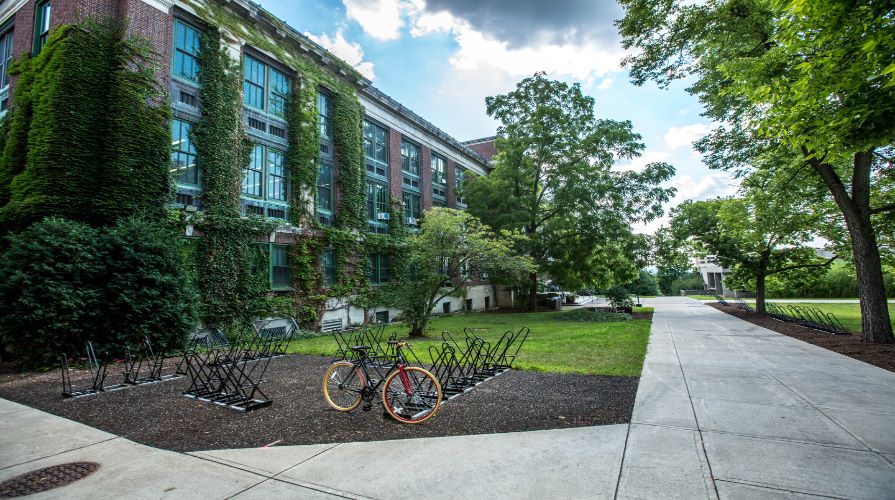Safety Personnel Staffing
It’s important to understand the options for complying with the requirement in House Bill (HB) 3 of the 88th Regular Session of the Texas Legislature for having an armed security officer at each campus during regular school hours.
Before hiring or posting safety personnel vacancies, districts must consider what types of officers will meet the requirements and what steps must be taken to ensure implementation of HB 3 by September 1, 2023. Each board of trustees must determine the appropriate number of armed security officers for each district campus.
Options for safety personnel staffing are explained below.
Who Is an Armed Security Officer?
While school districts have a variety of options for employing security personnel, only three options will meet the HB3 requirement of having an armed security officer present at each school campus during regular school hours, absent a good cause exception.
School District Peace Officer. A school peace officer is a district employee who is licensed by the Texas Commission of Law Enforcement (TCOLE) and commissioned by the district. This option is only available if the district has established or creates its own police department.
School district officers are required to complete school safety courses for law enforcement per Texas Education Code (TEC) § 37.205 and active shooter response training required by TEC § 37.0812.
School Resource Officer. A school resource officer (SRO) is a commissioned peace officer employed by a local municipality (e.g., sheriff, police officer) who is assigned to a specific district through a memorandum of understanding (MOU). A district contracts with the municipality, which means the officer is an employee of the municipality, not the district. In many arrangements, the MOU stipulates that the officer can be called to other duties as needed by the employing agency resulting in lack of coverage during school hours. The district may want to clarify in the MOU what substantiates “as needed” by the employing agency in order to comply with the requirement for the armed security officer to be present during regular school hours.
SROs are required to complete the same training as school district peace officers.
Commissioned Peace Officer Employed as Security Personnel. Districts may contract directly with an off-duty commissioned peace officer or through a security services contractor licensed under Texas Occupations Code chapter 1702. These individuals must work as a peace officer for the agency holding their commission on average at least 32 hours per week (see Occupations Code § 1702.322). Because these individuals are already committed to working 32 hours per week for the agency holding their commission, multiple individuals would need to be assigned to an individual campus to ensure coverage during regular school hours. For example, a security services contractor may assign a different officer to a campus each day of the week.
Most districts hiring off-duty commissioned peace officers classify them as independent contractors. While this is common practice, specific Internal Revenue Service or Department of Labor Wage and Hour Division guidance to support this designation isn’t available. Districts should consult their local counsel before designating the individual as an independent contractor.
Good Cause Exception
If the district can’t meet the requirement to have an armed security officer present at each school campus during regular school hours due to lack of funding or qualified personnel, the board may claim a good cause exception and develop an alternative standard with which the district can comply. Districts’ alternative standards should meet the district’s local security needs using the resources and personnel available. Districts will meet local needs through a variety of means; there is no one size fits all approach.
HB 3 specifically mentions that an alternative standard may include the use of school marshals or school guardians.
School Marshal. A school district may appoint one or more school marshals for each campus. The marshal must be licensed and certified by TCOLE. The individual must complete the specialized 80-hour marshal training program and undergo a psychological exam. Appointment as a school marshal typically is a supplemental designation to a full-time employee of the district, and TEC § 37.0811 specifies that the identify of a school marshal appointed by the district is confidential.
A school marshal may carry or possess a handgun on the physical premises of a school according to written regulations adopted by the board and only at the school specified by the board. Additional information about school marshals can be found in the TASB School Law eSource paper School Marshals and Other Personnel Carrying Firearms.
School Guardian. The board’s alternative standard may also include use of a school district employee or a person with whom the district contracts who has completed school safety training provided by a qualified handgun instructor certified in school safety under Texas Government Code § 411.1901 and carries a handgun on school premises in accordance with written regulations or written authorization of the district under Texas Penal Code § 46.03(a)(1)(A). A policy authorizing the designation of specific employees who are authorized to carry firearms on school premises is sometimes referred to as a “Guardian Plan.”
The number of training hours required for guardians is only 16, compared to the 80 required for marshals. As with school marshals, appointment as a guardian is a supplemental designation to a full-time employee and the identify of a guardian is typically confidential.
Details on authorizing employees to carry a handgun can be found in the TASB School Law eSource paper School Marshals and Other Personnel Carrying Firearms, including liability, employee compensation, and other local considerations.
Additional Option. A district may also contract with a security service to provide commissioned security officers as defined by Occupations Code § 1702.322. These individuals are not commissioned peace officers and are required to have completed Department of Public Safety Level II or III training courses.
Other Steps
A school board must develop and maintain documentation of the district’s implementation and compliance with the provisions of HB 3, including documentation related to claiming a good cause exception. Districts using a school marshal or guardian will need to memorialize choices while ensuring confidentiality where needed (e.g., marshal and guardian identities).
Additional information will be forthcoming from the TEA School Safety Division, including an HB 3 School Safety Video/Webinar on August 24 and an HB 3 Implementation Support Webinar Series in September. More details can be found in the TASB School Law eSource document Armed Security Officer Requirement in House Bill 3.
HR Services

Subscribe to HRX
Stay up to date with all the latest HR news and trends by joining the HRX mailing list!





